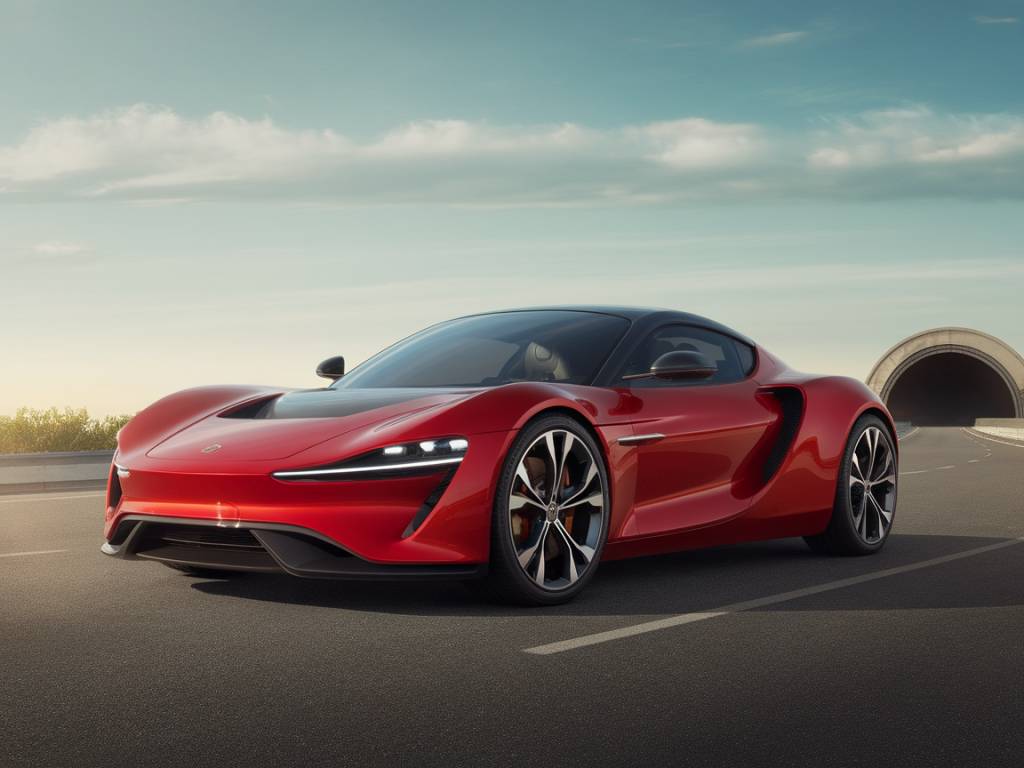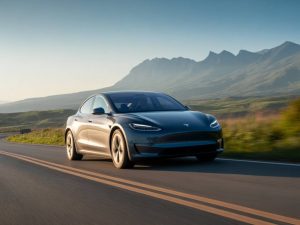How electric sports cars are revolutionizing the high-performance market

how electric sports cars are revolutionizing the high-performance market
In recent years, the emergence of electric sports cars has significantly reshaped the landscape of the high-performance automobile market. As environmental concerns grow and technology advances, manufacturers are racing to develop ultra-efficient and incredibly fast electric sports cars. This article delves into how electric sports cars are revolutionizing the high-performance market by examining their benefits, technologies, and consumer reception.
The Rise of Electric Sports Cars
Electric sports cars have seen a meteoric rise in popularity, largely driven by the success of pioneering brands like Tesla, Porsche, and Rimac. These manufacturers have proven that electric vehicles (EVs) can deliver not only eco-friendly transportation but also unparalleled performance and driving pleasure. With advancements in battery technology and electric motor efficiency, electric sports cars now offer acceleration and handling characteristics that rival, and in some cases surpass, those of traditional internal combustion engine (ICE) sports cars.
Technological Innovations Driving the Revolution
The revolution in the high-performance market can be attributed to several key technological innovations. These include:
- Battery Technology
Modern electric sports cars utilize lithium-ion batteries, which provide an impressive balance of energy density, weight, and recharge time. Some manufacturers are exploring solid-state batteries, which promise even greater energy density and faster charging capabilities. The latest battery management systems ensure optimal performance and longevity, addressing one of the main concerns potential buyers have regarding EVs.
- Electric Motors
Electric motors provide instant torque, a characteristic that allows electric sports cars to achieve rapid acceleration. Dual-motor setups, where each axle has its own motor, have become common in high-performance models, offering improved traction and handling. Advanced motor control systems contribute to efficient power delivery, ensuring a thrilling driving experience.
- Aerodynamics and Chassis Design
Aerodynamics play a crucial role in the performance of any sports car, and electric models are no exception. Engineers are optimizing aerodynamic profiles to reduce drag and improve energy efficiency. The absence of a bulky engine allows for more innovative chassis designs, which can improve vehicle handling and stability. Lightweight materials such as carbon fiber and aluminum are extensively used to minimize weight without compromising strength.
Environmental and Economic Benefits
One of the most significant benefits of electric sports cars is their positive environmental impact. They produce zero tailpipe emissions, helping to reduce air pollution and combat climate change. This is particularly appealing to eco-conscious consumers who desire high performance without the guilt of high emissions.
On the economic front, electric sports cars have lower operating costs compared to their ICE counterparts. Electricity is generally cheaper than gasoline on a per-mile basis, and maintenance costs are lower due to fewer moving parts and the absence of oil changes. Government incentives, such as tax credits and rebates, further enhance the economic appeal of these vehicles.
Challenges and Limitations
Despite their numerous advantages, electric sports cars face several challenges. Limited driving range and long recharge times remain significant concerns for potential buyers. While fast-charging infrastructure is expanding, it is not yet as widespread and convenient as gasoline refueling stations.
Battery degradation over time is another issue, although advancements in battery chemistry and management systems are gradually mitigating this problem. High initial purchase prices also deter some consumers, although the total cost of ownership can be competitive with ICE sports cars over the long term.
Consumer Reception and Market Trends
Consumer reception of electric sports cars has been overwhelmingly positive, with many praising their performance, sustainability, and modern driving experience. Industry giants like Tesla have set high benchmarks with models such as the Tesla Roadster, which boasts a staggering 0-60 mph time of under 2 seconds. Porsche’s Taycan, with its luxurious interior and dynamic driving capabilities, has also attracted significant attention.
Investors and market analysts are optimistic about the future of electric sports cars, predicting steady growth in this segment. Traditional automakers are expanding their electric lineups, and new entrants are continually entering the market, fostering healthy competition and rapid advancements.
Future Prospects and Developments
The future looks bright for electric sports cars, with several exciting developments on the horizon. Emerging battery technologies, such as graphene and solid-state batteries, promise to resolve current limitations related to range and charging times. Autonomous driving capabilities and advanced driver-assistance systems (ADAS) are also expected to become standard features, offering enhanced safety and convenience.
Hybrid sports cars, which combine electric motors with traditional engines, are another area of interest. These vehicles offer the benefits of electric driving with the extended range of an ICE, providing a versatile solution for high-performance enthusiasts.
Impact on the Automotive Industry
The shift towards electric sports cars is having a profound impact on the broader automotive industry. Traditional automakers are investing heavily in EV research and development, leading to technological spillovers that benefit other vehicle segments. The push for electric sports cars is also accelerating the development of charging infrastructure, which is crucial for the mass adoption of electric vehicles.
Moreover, the competitive pressure from new electric sports car manufacturers is forcing established brands to innovate and adapt. This competition is likely to result in better, more affordable vehicles for consumers, driving the EV market forward.
Conclusion: The Road Ahead
Electric sports cars are undeniably revolutionizing the high-performance market, offering a compelling combination of sustainability, performance, and innovation. As technology continues to advance and adoption rates increase, these vehicles are set to become a mainstay in the automotive world. For consumers and enthusiasts, the future of high-performance driving looks electrifyingly exciting.
Whether you are an eco-conscious driver, a performance enthusiast, or simply an avid follower of automotive trends, electric sports cars represent a thrilling frontier. They are not just the future of sports cars; they are redefining what high-performance driving can be.





